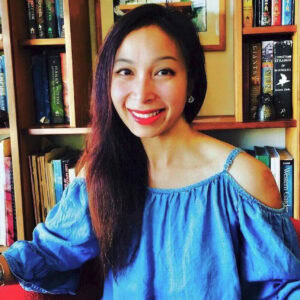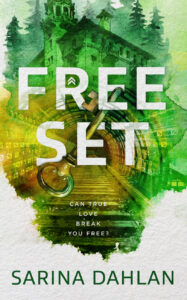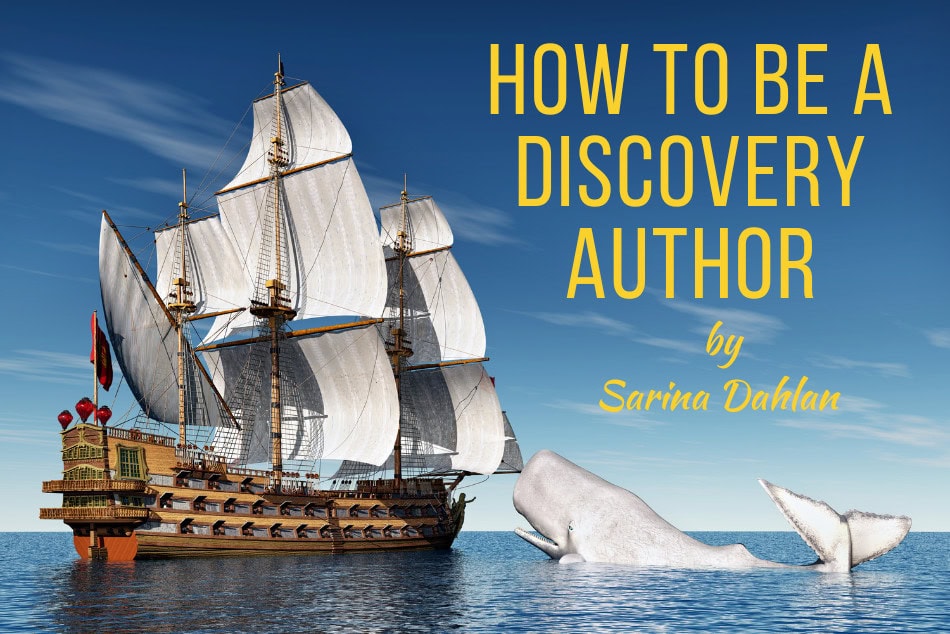Do you write from your gut? Do you create outlines you never follow? Do you often find yourself lost inside your manuscript, following your characters into a dark forest as though they were the rabbit from Alice in Wonderland? If you answered ‘yes’ to these questions, perhaps, like me, you are a discovery writer.
Writing, for me, is a state in between dreams and reality. It’s that scene in the Matrix when Neo touches his reflection in the mirror and it transforms into liquid and pulls him into a different existence. Because of this, I find hard and fast writing rules jarring and impractical to my style. So, dear fellow discovery writers, instead of giving you a list of precise dos and don’ts, I’m passing on words of wisdom from writers I admire, and how I put them into practice.
These words are what I hold close through all the ups and downs on my writing journey. After seven years of being a full-time writer—with three published novels (Reset, Preset, and Freeset, Blackstone Publishing) and a short story collection (Shadow Play, Ten Tales from the In-between), they continue to be my north star.
“We writers are the raw nerve of the universe. Our job is to go out and feel things for people, then to come back and tell them how it feels to be alive. Because they are numb. Because we have forgotten.” –Ursula K. Le Guin
I can’t quite recall when I first came across this Ursula K. Le Guin quote. Whether or not she meant these words as advice, they have stayed with me. But then her words always have a way of staying with me. Long before I contemplated writing as a profession, I had read her science fiction novel, The Dispossessed. While set on two distant sister planets, it reflects our current worldviews and challenges them. Philosophical at its core, it dissects concepts like capitalism, socialism, and anarchism—and what it means to be human within these systems. All my life, I’ve been partial to books that make me very aware of being human. How we fit inside ourselves. How we fit into the world. How we fit into each other. The best of these books, like hers, are true inspirations.
What does it look like in practice?
As a discovery writer, writing is an act of witnessing and relaying while respecting the characters’ truth. Even when we don’t agree. Even when it hurts to watch them lose their way, or someone they love, or their sense of self. It’s empathy on steroids.
During the seven years I spent writing the Four Cities series, I lived with my characters daily—loving with them, being afraid for them, and finding hope in love as they do. In Reset, I followed Aris and Metis, past lovers who tried to find each other again after their memories were wiped in tabula rasa, a process everyone goes through every four years in order to maintain peace in the utopia of the Four Cities. When I was writing Preset, the prequel that tells the story of how that world came to be, I had to dig deep to understand why the memory wipe became necessary. I spent time with Eli and Eleanor as they navigated life after the Last War, and the sacrifices they had to make to save the last of humanity. In Freeset, the sequel to the first book, so often I was stuck inside a dark tunnel with my characters as they grappled to find their way to freedom, not knowing how to get us out. Was it easy? No. Was it necessary for me? Yes.
Having seen the world through their eyes, I understood their whys and the price each had to pay in the name of love. I am a more empathetic writer and person for having lived through my characters. When I hear from readers how my stories make them feel, I’m grateful I did right by them.
“Hope is a moral obligation.” –Kim Stanley Robinson
I first met Kim Stanley Robinson virtually in 2022 while I was interviewing him for an article on science fiction authors who had graduated from the University of California, San Diego. Not only was he generous with his time, he instilled in me a sense of responsibility as a writer. From New York 2140 to Ministry for the Future, Robinson writes bestselling and award-winning science fiction with an eye toward hope. His characters are survivors through the worst of times and his stories root for humanity. Always.
An approach for speculative fiction.
Writing speculative fiction about a possible future based on current events can be, let’s just say, anxiety inducing. More than once, the line between here and there gets blurry, and the angst gets transferred. But I try to center back to hope. In order for humanity to survive—in fiction and reality—we have to come together in believing that it’s worth saving and that there is a better path forward.
It isn’t toxic optimism where we only present the world through rose-colored glasses. Nor is it shutting out the world from the fear of it. I believe in showing the readers life’s ugliness and beauty alongside each other and trusting them to be able to hold opposing thoughts at the same time. It’s respecting the complexity of our shared experiences and understanding the power of our connectedness. In centering on hope, my characters and I find the strength to get out of darkness and into the light.
“A word after a word after a word is power.” –Margaret Atwood
Margaret Atwood first lured me in with Penelopiad, a retelling of the Odyssey from Penelope’s perspective. After, I graduated to her collection of grim and fascinating short stories in The Stone Mattress. Then I read The Handmaid’s Tale and became utterly terrified. But still intrigued. Then I took her MasterClass on writing and found her practicality so grounding. Writing to her is work. It is about putting one word after another and not stopping until you hold in your hands a time bomb.
An approach that helps jump start a book.
When I begin a book, I never know the full story. I just know the why. Why am I telling this story? Why should this matter to the readers? Why am I the right person to tell it? The rest I get as glimpses, as feelings, as whispered conversations. Once enough details have accumulated, I begin the physical part of writing. Word by word, the characters transform into living beings, their motivations forming, their voices becoming clearer. Sometimes the opposite happens, and I will have to disassemble and backtrack. It’s like building a skyscraper with toothpicks, then having to rebuild because I’ve discovered a weakness on one of the floors or—worst case scenario—the foundation. What keeps me going is trust. Trusting in myself that I can and will finish. Trusting that all my words, when put together, become power.
“The entire universe is inside you.” –Rumi
Rumi’s poetry present love and life as a spiritual journey, and whenever I feel lacking in creativity, I look to him. Sometimes I listen to his words in Farsi even though I do not understand them. Instantly they bring me to the desert at night in front of a campfire. A collection of his love poems ended up inspiring a character in Freeset—the person who sparks an entire revolution without meaning to.
An approach to jump start creativity.
As writers, we write. But sometimes the creative well runs low, making writing seem tedious. Whenever I feel that way, I tap into what the universe inside has to offer. What that means for me is finding a way to connect to the elements that make me human—every part of my past, every possible future, every place I call home.
At the end of 2023 after I turned in my final edited version of Freeset, I was creatively drained. I felt as though I had no stories left inside me. Then I decided to go back to where life began for me: Thailand. After a visit to the shrine of a famous ghost, the ruins of the 673-year-old Thai capitol, and a forest school on the border of Thailand and Myanmar, stories began to emerge as though they had lived inside me all along. And they had, I just had to remember.
Writing is a life’s path. It’s fulfilling. It’s love. But it also demands a lot from a writer in search of truth. These four quotes have helped me get to the heart of my characters, center hope at the core of my stories, finish writing each book, and refill my creative well. They have been my compass guiding me forward as new stories wait to be discovered. I hope you find them as inspiring as I do.
 Sarina Dahlan was born into an Indonesian family in Thailand, and immigrated to the United States at the age of twelve. While children in the west grew up on fairytales, she learned parables through ghost stories, mythologies, and Japanese manga.
Sarina Dahlan was born into an Indonesian family in Thailand, and immigrated to the United States at the age of twelve. While children in the west grew up on fairytales, she learned parables through ghost stories, mythologies, and Japanese manga.
A graduate of the University of California, San Diego with degrees in Psychology and Visual Arts, she has blended both disciplines in careers as an advertising producer, a corporate marketing strategist, and a writer. 
She considers herself a writer of place and finds inspiration for her stories in traveling and the places she has lived. She currently resides in San Diego with her family.
Her latest novel FREESET is available everywhere books are sold.





